Christmas trees used to shore up beach dunes
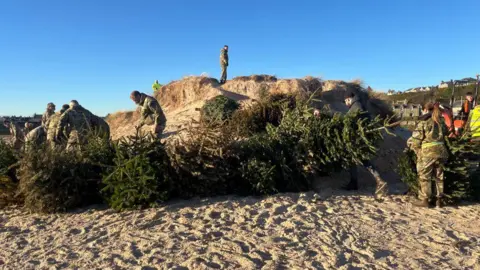 BBC
BBCHundreds of Christmas trees are being used to shore up sand dunes at Lossiemouth in a bid to keep coastal erosion at bay.
Lossiemouth Community Council is behind the project at the Moray town's East Beach.
They have been assisted by personnel from RAF Lossiemouth and volunteers from the local community.
Having already being collected and carried to the beach, a trench will now be dug and the trees put in place. The plan is that grass will later be sewn, and that sand will catch, forming new eco-systems.
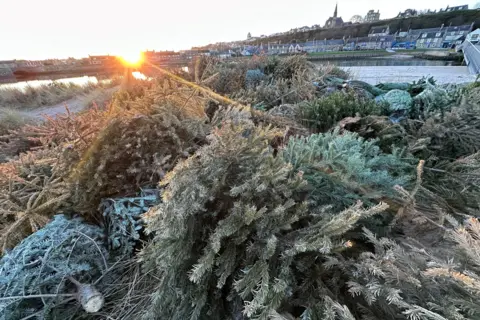 Douglas T Coutts
Douglas T Coutts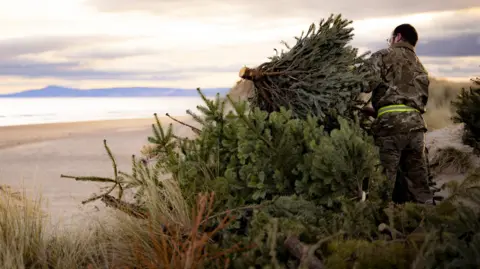 RAF Lossiemouth
RAF Lossiemouth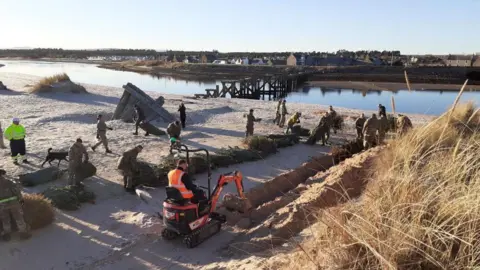 Moray Council
Moray Council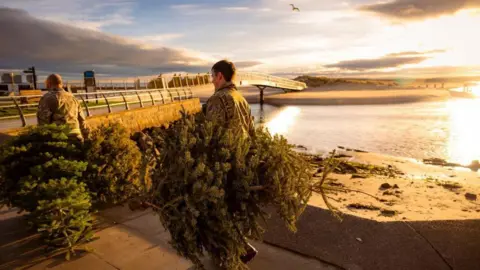 RAF Lossiemouth
RAF LossiemouthAt the end of last year, the community council made a plea asking for people to donate their discarded Christmas trees for the coastal erosion project.
The trees have been collected over the past few weeks.
Carolle Ralph, who is the chairwoman of Lossiemouth Community Council, told BBC Scotland News a micro digger will be used for the trench and trees, after matts are used to get it across a beach bridge.
"The last thing we want to do is damage the bridge," she said, after it opened in 2022.
Of the East Beach erosion project, she said: "It's the first time we have done this so we didn't really have a full concept of what was needed."
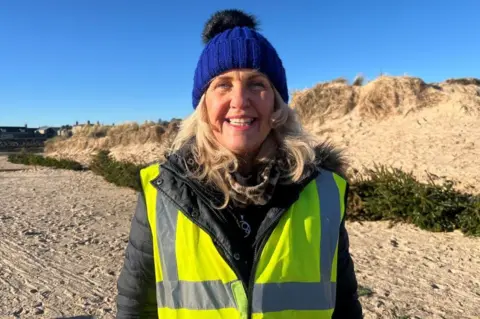
She explained: "We first spoke about it at the end of Covid times. Coastal erosion is a problem.
"Building the dunes back up to restore them is something of little cost and it is also recycling trees."
The aim is for children to get involved in the next stage of volunteering when marram grass will be sewn in a bid to knit the trees together.
"The hope is the trees and grass will catch the sand and new eco-systems can develop," she said.
"The trees will be at a 45-degree angle, facing the sea and wind. We will pack the trees down thoroughly.
"We may lose some but we will take evidence over the next few months.
"We have tried to involve as many people as possible."
She described the RAF Lossiemouth help as a "welcome sight" both in terms of planning as well as pure physicality when they were moving the trees into place.
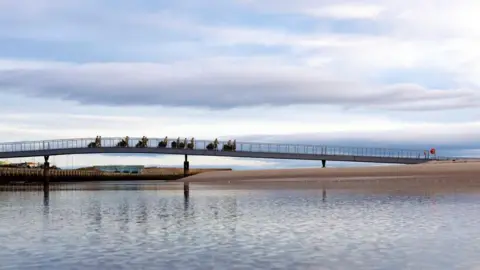 RAF Lossiemouth
RAF Lossiemouth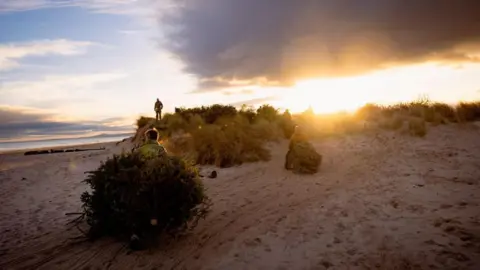 RAF Lossiemouth
RAF LossiemouthRAF Lossiemouth said it was "proud" to have been helping, on a voluntary basis.
It said the project was "aiding in conservation activities to benefit future generations".
"The 'Team Lossie' ethos we have here on station often emphasises the importance of our personnel spending their time wisely and contributing back to the local community that give us so much support daily," a statement said.
Moray Council added: "While Christmas is long behind us now, it's heartening to see the festive spirit and a local commitment to recycling make a real impact in efforts to protect dunes at Lossiemouth East Beach from the ongoing threat of coastal erosion."
